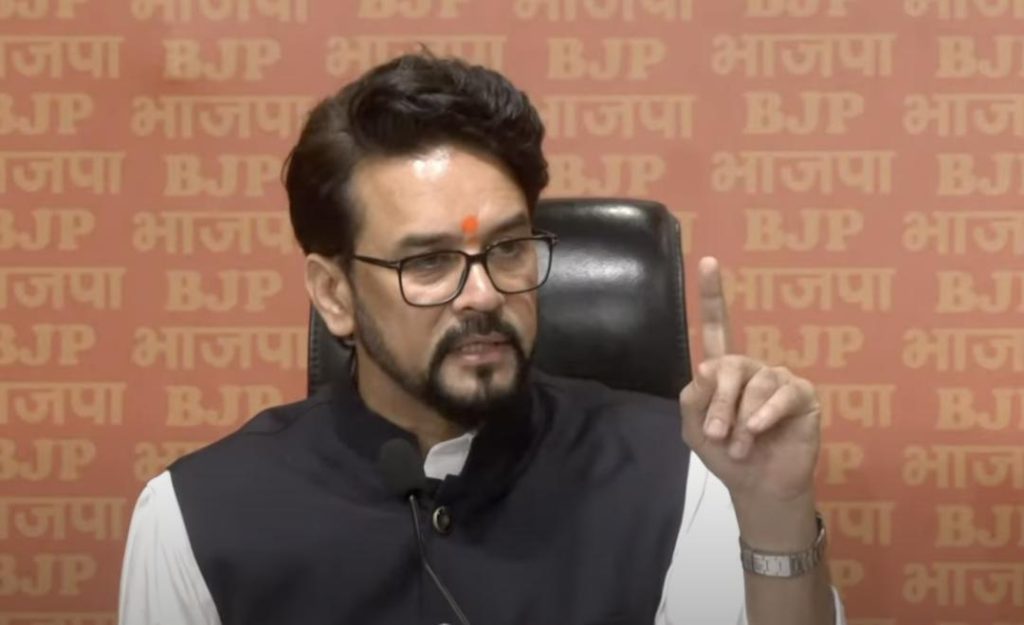
Title: Congress & CPI made Bhimrao Ambedkar lose the poll in 1952: BJP
In a recent statement, BJP MP Anurag Thakur has stirred up a controversy by claiming that the Congress and CPI jointly conspired to defeat Dr. Bhimrao Ambedkar in the 1952 elections. According to Thakur, this incident marked the beginning of electoral corruption in India. The statement has sparked a heated debate, with many questioning the accuracy of Thakur’s claims.
For those who may not be aware, Dr. Bhimrao Ambedkar was a renowned Indian politician, economist, and social reformer who played a crucial role in the drafting of India’s constitution. He was also a champion of Dalit rights and a leader who worked tirelessly to uplift the marginalized sections of society.
Thakur’s statement is based on the fact that Ambedkar lost the election in 1952 by a significant margin. The election was held for the Bombay Legislative Assembly, and Ambedkar contested as an independent candidate. According to the official records, Ambedkar received 44,251 votes, while his closest rival, Y.B. Chavan, received 54,624 votes.
However, what is puzzling is that 74,333 votes were rejected in the election. Thakur claims that this was a deliberate attempt by the Congress and CPI to eliminate Ambedkar from the electoral process. He argues that the Congress, which was the ruling party at the time, and the CPI, which was a key ally, colluded to manipulate the election results in favor of their own candidates.
Thakur’s statement has sparked a heated debate, with many arguing that his claims are baseless and lack concrete evidence. The Congress party has vehemently denied the allegations, stating that there is no truth to the claim. The CPI has also refused to comment on the matter.
Despite the controversy, there is no denying that the 1952 election was marked by widespread irregularities and booth capturing. Many independent candidates, including Ambedkar, complained of electoral malpractices and intimidation by the ruling party.
It is also worth noting that Ambedkar’s loss in the election was a significant setback for the Dalit movement, which was gaining momentum at the time. Ambedkar’s defeat was seen as a blow to the movement, and many saw it as a result of the Congress’s attempts to silence him.
In conclusion, while Thakur’s statement has sparked a heated debate, it is essential to separate fact from fiction. The fact remains that Ambedkar lost the election in 1952, and the reasons for his loss are still a matter of debate. However, it is also true that the 1952 election was marked by widespread irregularities and booth capturing, which raises questions about the integrity of the electoral process.
As we move forward, it is essential to learn from the past and work towards a more transparent and accountable electoral process. It is only by acknowledging the mistakes of the past that we can build a more inclusive and democratic society.
News Source:
https://youtu.be/0kLyW5rSJSg






